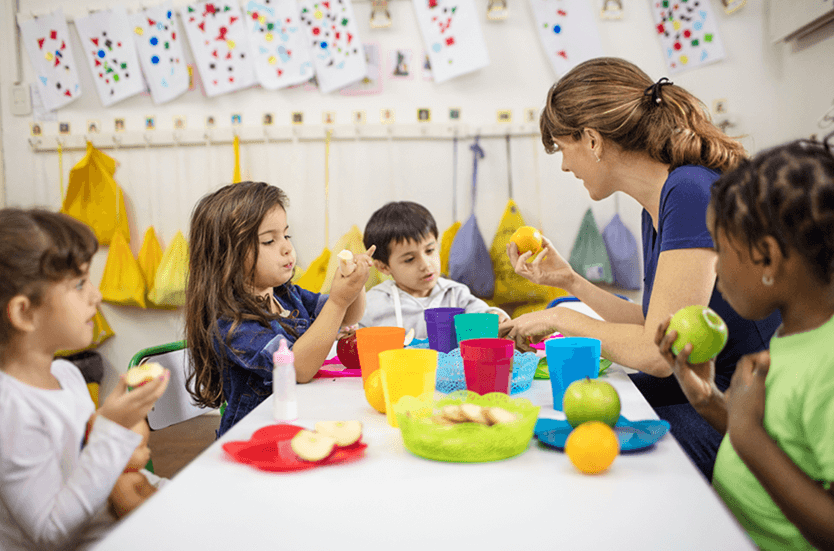Making meal and snack times positive
Eating without Pressure
When serving food to children, the focus is usually on the types of foods to promote healthy growth and development. Newest health guidelines also emphasize the importance of creating an enjoyable eating environment. Meal and snack times should be relaxed, fun and without pressure. Child feeding experts recommend specific roles for adults and children to keep meal environments positive.
The Adult’s Role: Decide what foods to serve, as well as when and where to serve them.
- Serve all children the same foods.
- Offer meals and snacks at regular and reliable times so children know what to expect.
- Provide a clean and comfortable place to sit down and eat, that is free from distractions.
The Child’s Role: Decide whether to eat the foods and how much to eat.
- Trust children to make this choice on their own.
- Support children’s decisions about how much to eat from the foods you offer.
For more information about this, refer to the Satter Division of Responsibility in Feeding www.ellynsatterinstitute.org.
This way of feeding may be very different from what educators and caregivers experienced themselves. It may take a while to get used to this concept, so be patient with the children and with yourself.
Words are Important
Pressure at mealtimes can lead to power struggles. Pressure can also interfere with the child’s ability to listen to their hunger and fullness cues, putting them at risk of eating too much or too little. Children might eat to please an adult even though they’re not hungry. This could affect their behaviour over time and may lead to seeking food as a reward for good behaviour.
Words are often used to encourage children to eat. Phrases like “eat your carrots, they will make you grow big and strong” or “what a big girl/boy! You ate all of your chicken” are often said with good intentions. They can, however, lead to unhealthy relationships with food. Instead, try saying “did you know carrots come in colours other than orange?” or “we can make chicken this way again”.
Serving foods without pressure and respecting the child’s role at mealtimes helps everyone enjoy meals and snacks. Learning to support and trust young eaters will help children build healthy relationships with food and develop life-long eating habits.
For more information, see our article on Redefining Picky Eaters.

